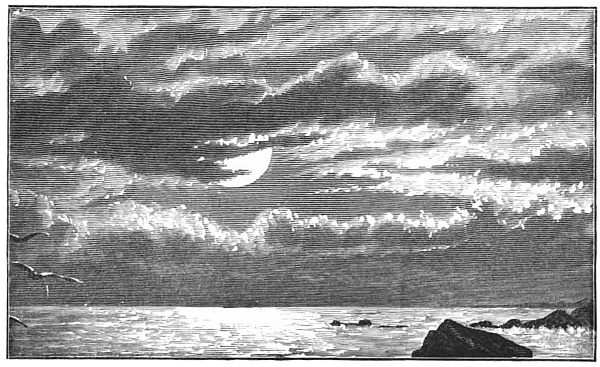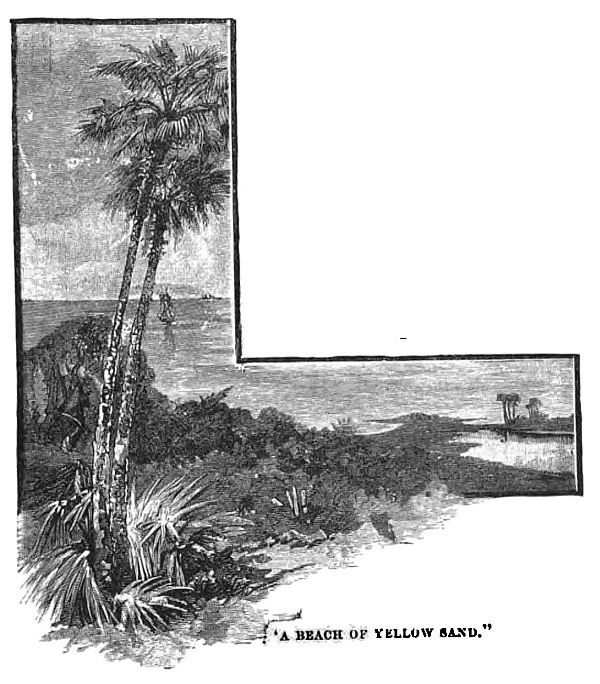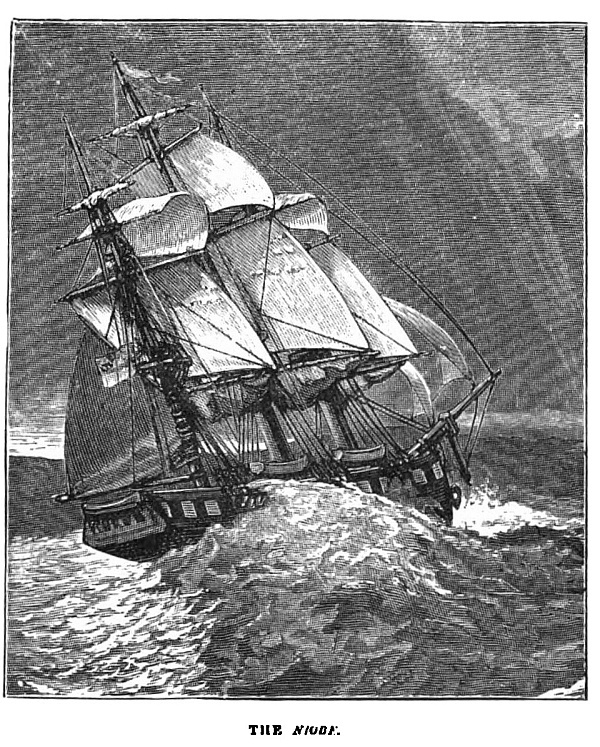Gordon Stables
"O'er Many Lands, on Many Seas"
Chapter One.
“And I have loved thee, Ocean! and my joy
Of youthful sports was on thy breast to be
Borne, like thy bubbles, onward; from a boy
I wantoned with thy breakers—they to me
Were a delight...
For I was, as it were, a child of thee.”
Byron.

Not a breath of wind from any direction. Not a cloud in the sky, not a ripple on the ocean’s blue. Only when a bird alighted on the water, quisling rings of silver formed all around it, and widened and widened, but soon were lost to view. Or when a fish leaped up, or the dorsal fin of some monster shark appeared above the surface, the sea about it trembled for a time, trembled and sparkled as if a shower of diamonds had suddenly fallen there.

And a broad low swell came rolling in from the Indian Ocean, as if the bosom of the sea were moving in its sleep. But landwards, had you looked, you might have seen it break in a long fringe of snowy foam on a beach of yellow sand; and, had you listened, the distant hum and boom of those breakers would have fallen on your ears in a kind of drowsy long-drawn monotone.
The brave ship Niobe (this word is pronounced as if spelt “Ni-o-bee”) slowly rose and slowly fell, and gently rocked and rolled on this heaving tide, and sometimes her great sails flapped with the vessel’s motion, but, alas! not with the rising wind.
No, not with the rising wind, but whenever they moved, the officer who paced up and down the white-scoured quarter-deck, would glance above as if in hope; then he would gaze seawards, and anon shorewards, wistfully, wishfully, uneasily.
Uneasy, indeed, was the feeling on the minds of all on board.
The vessel was far too near the shore, the wind had been dead for hours, but it had died away suddenly, and the glass had gone tumbling down. That it would come on to blow again, and that before long, everyone from the captain to the dark-skinned Kroo-boy was well aware. But from what direction would the wind come? If from the east, strong though the Niobe was, close to the wind though she could sail, well-officered and manned though she was, there was more than a probability she would be dashed to pieces on that sandy beach.
And small mercy could the survivors, if any, expect from the savage Somali Indians, and the still more cruel Arabs, who dwelt in the wretched little towns and villages on the coast. For the ship was here in the Indian Ocean for the avowed purpose of putting down slavery and piracy, and by slavery and piracy those Arabs lived.

It was in the days before steam-power was generally adopted by our navy, when sailors were sailors in reality, and not merely in name.
The crew of the Niobe numbered about seventy, all told fore—and—aft. She carried ten good guns, and an unlimited supply of small arms, cutlasses, and boarding pikes. The timbers of this brave craft were of the toughest teak, ay, and her men were hearts of oak. They feared nothing, they hated nothing, save uncertainty and inaction. All that they longed for was to be accomplishing the object of their cruise.
...